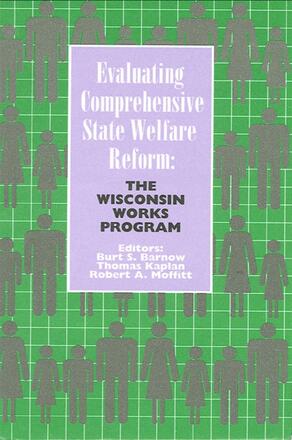
Evaluating Comprehensive State Welfare Reform
The Wisconsin Works Program
Alternative formats available from:
Discusses issues involved in evaluating the new reforms, and applies those issues to the evaluation of welfare reform in Wisconsin.
Description
The recent delegation of authority for welfare programs from the federal government to the states has stimulated increasingly complex and comprehensive reforms which seek in part to generate social messages that discourage dependency on public assistance, promote work, and influence family formation decisions. The message-sending emphasis of the new reforms and their comprehensiveness often makes them hard to evaluate through conventional experimental designs using treatment and control groups. This book offers a lucid discussion of issues involved in evaluating the new reforms, and applies those issues to the evaluation of welfare reform in one state, Wisconsin, which offers a leading example of comprehensive welfare reform.
The book opens with an overview of the different types of program evaluation and summarizes clearly the basic issues that are involved in their conduct. A discussion of general evaluation strategies for the new welfare reforms, such as the selection and use of counterfactuals, is followed by consideration of both implementation and impact evaluations of the Wisconsin program. The final section considers the evaluation of specific impacts of the Wisconsin program on economic well-being, family structure, child care services, child support, child welfare, and children with disabilities.
Burt S. Barnow is interim associate director for research at the Institute for Policy Studies, Johns Hopkins University. Thomas Kaplan is a senior scientist at the Institute for Research on Poverty, University of Wisconsin at Madison. Robert A. Moffitt is a professor of economics at Johns Hopkins University.